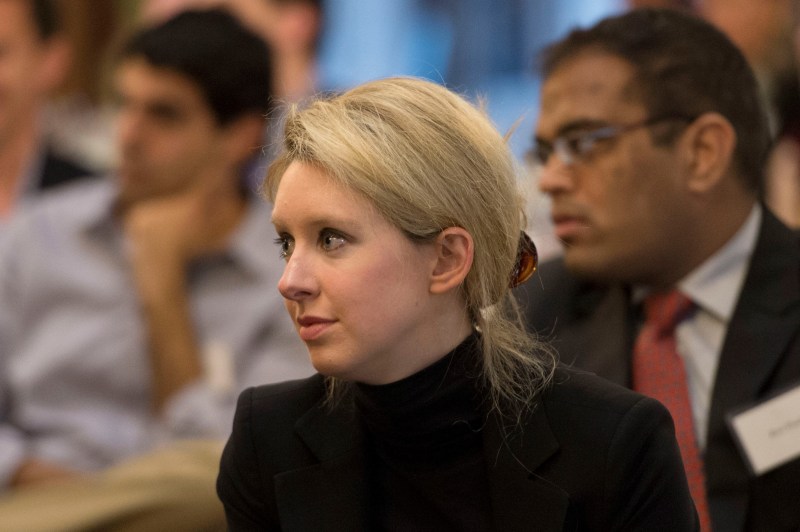The pending trial of former Theranos CEO and Stanford dropout Elizabeth Holmes and COO Ramesh Balwani has been delayed to August 4, 2020 so the defense can review evidence.
After the defense’s request to review exculpatory evidence was granted, the U.S District Court for the Northern District of California revealed that jury selection for the trial is to begin the week of July 28, 2020.
Holmes and Balwani bear charges of “massive fraud” from the U.S. Security and Exchange Commission (SEC) since Theranos’ downfall in 2015. They stand accused of amassing more than $700 million from private investors by making false claims regarding the financial and technological success Theranos was yielding. The jury further stated that “the tests performed on Theranos technology were likely to contain inaccurate and unreliable results.” Doctors and patients alike have been misguided by such test results, adding to the list of charges against the defendants.
In the wake of a two-year investigation led and concluded by the U.S. Attorney’s office in June 2018, Holmes and Balwani were charged with nine counts of wire fraud and two counts of conspiracy to commit wire fraud. These allegations hold them accountable for endangering the lives of patients and acquiring millions of dollars by defrauding investors. Venture capitalists such as Timothy Draper and Oracle investor Don Lucas were among those deceived by Theranos’ false statements.
Stanford alumni such as William Perry ’50, Richard Kovacevich ’67 and Riley Bechtel ’77 were among Theranos’ notable board members. George Shultz, a former Secretary of State and prominent member of the Hoover Institution at Stanford, joined the board in 2011, supposedly encouraging other luminaries such as Perry to follow. When asked by The Daily about his thoughts on the trial and his experience as a board member for Theranos, Shultz declined to comment.
Holmes’ defense was able to delay the process of setting a definitive trial date by demanding access to previous government interactions with Wall Street Journal reporter John Carreyrou— more specifically, his relations with the FDA and the Centers for Medicare and Medicaid Services, The New York Times reported. The defense hopes to prove government agencies were more influenced to investigate Theranos than other companies based on communications with Carreyrou, as opposed to pure suspicion of illegal activity.
“An outside actor, eager to break a story (and portray the story as a work of investigative journalism), was exerting influence on the regulatory process in a way that appears to have warped the agencies’ focus on the company and possibly biased the agencies’ findings against it,” states Theranos’ case against the government.
Theranos’ defense also urges the jury to believe that federal officials overreacted in response to Carreyrou’s 2015 article and misunderstood the inner workings of Theranos.
As an undergraduate, Holmes approached Stanford Medicine professor Phyllis Gardner for advice on her idea to develop a patch that would recognize microbes or infections and disperse the required antibiotics through the patient’s skin. However, her ideas were questioned by Dr. Gardner, who could not fathom how Holmes would implement her design and later described her as “a very inexperienced student with a grand idea based on illusions” in an email to The Daily.
Holmes brushed aside Gardner’s advice and continued to work on her design for the patch and the Edison — a device that would later be advertised as a portable blood testing machine unique to Theranos.
After attending Stanford for one year, Holmes, a chemical engineering major, dropped out in 2003 to launch her healthcare technology company, whose name was later changed from “Real-Time Cures” to “Theranos.” With a goal of making blood testing cheaper, less painful and timelier for the consumer, the 19-year-old armed herself with personal connections and the trust of many reputable figures, including the Walton family, the founders of Walmart.
Theranos entered deals with both Safeway and Walgreens in 2011, but both partnerships ended after John Carreyrou published an article highlighting the Edison’s inconclusive and fluctuated test results. In the following years, Theranos faced several lawsuits from its investors, spurring the investigation that earned Holmes and Balwani multiple counts of wire fraud.
Holmes and Balwani both pleaded not guilty to these charges, despite Holmes admitting to the SEC in 2017 that her previous statement on Theranos offering 200-plus blood tests was incorrect. She also admitted to “making mistakes with test devices” and not knowing exactly how many successful tests the Edison could conduct.
Holmes was forced to step down as CEO of Theranos following the indictment, but retained her role as chair of the board. Holmes and Balwani face a maximum of 20 years in prison, with a potential fine of $250,000 per count of wire fraud and conspiracy, amounting to approximately $2.5 million each.
“Any sentence following conviction would be imposed by the court after consideration of the U.S. Sentencing Guidelines and the federal statute governing the imposition of a sentence,” the indictment states.
Contact Sakshi Umrotkar at sakshiumrotkar4 ‘at’ gmail.com.
